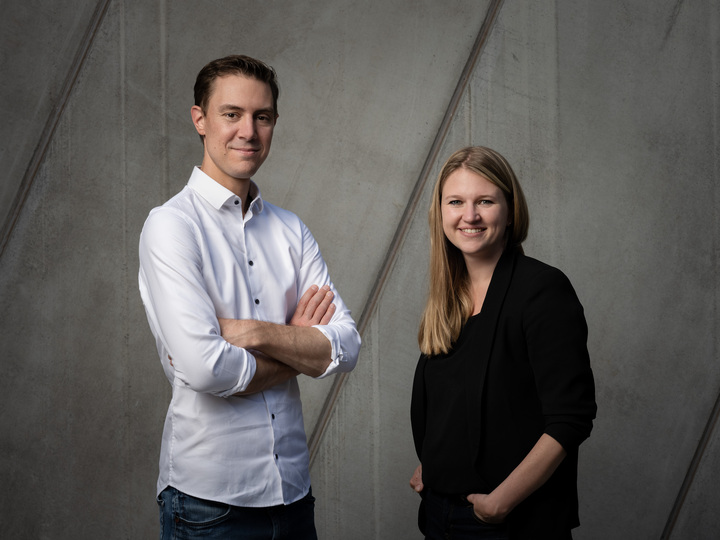A nice pair of sneakers, Brunello Cucinelli vest, an expensive car and a cry for help in their eyes — that's how I'd describe a typical venture capitalist on their path to becoming a partner one day.
In public, we position ourselves as superheroes supporting world-changing startups. In reality, it's a male-dominated, materialistic culture marked by burnout and cynicism.
We have only ourselves to blame for the misery we suffer and spread. We are sinners, and here are our gravest sins.
1. Hypocrisy
Venture capitalists often overpromise and oversell. We may claim that the portfolio is doing well when, in reality, it is struggling. We tell lies like this to other investors, trying to get results no matter the cost. And then we take offence when we’re lied to in return.
It's also typical to see an investor's LinkedIn post celebrating the success of their portfolio startup, with phrases like, "It's a great pleasure working with startup X", or "I am happy to share this huge success with X." Behind the scenes, however, they were calling each other names for months and never really worked together closely.
We promise founders to connect them with other investors or customers, but never follow through. We tell founders we’re interested in investing in their company, but then disappear without any explanation. We talk and talk, and it's rarely our honest intention.
This lack of trust ruins relationships with startup founders and creates a toxic cloud around VC in general.
2. Vanity
VCs are obsessed with appearing extravagant, even when it’s not in our budget. Many of us wear expensive clothes and tech accessories (irrational purchases), drive luxury cars (the same) and take lavish vacations in Mykonos in an attempt to project an image of success.
I wish the VC community would be more inclusive, so that more people could feel like they belong here.
A VC might boast about how much money they’ve made, post an Instagram picture with a coconut or talk about all the famous people they know. This kind of vanity can make us seem out of touch with reality, and it can make it difficult for struggling founders to relate to us.
And what if you are a VC who doesn't enjoy these things? What if you prefer spending time alone with a book or playing a video game, instead of booking a helicopter tour around Africa? In that case, you might feel like something's wrong with you, like you don't have the attributes to even talk to these people. It's killing networking.
This is especially challenging for those who are new to the industry. Newcomers may think that this extravagant lifestyle is the norm, and the industry has evolved into something resembling a fraternity with closed clubs and hazing.
I wish the VC community would be more inclusive, so that more people could feel like they belong here. When interesting, intelligent and ambitious people feel like they don't fit into this club, they either leave the industry or just feel excluded.
3. Lack of transparency
In the realm of NDAs and sensitive financial information, it's impossible to be 100% transparent about everything. But there's still plenty of room for genuine communication. There's no real reason for VCs, for example, to hold back concerns about the market or current competitive landscape in the respective industry.
We should more often approach founders saying, "I have looked at your market, and it's smaller than the numbers in your pitch. Let's talk, I want to know the logic behind your numbers."
This approach will initiate a conversation that can change the fate of a company. Instead of being open with founders, many of us choose to simply ghost them.
A similar thing happens when VCs talk to a potential portfolio startup and it becomes clear that there’s no chemistry. We just stop talking to the founders, instead of explaining why we wouldn’t invest. I get it, it's like explaining to your Tinder date why you didn’t like them — it sucks. But for the sake of the industry, it's still better to be open and explain why you decided not to invest.
4. Superficiality
VCs are often superficial in their assessment of startups. We tend to make rushed decisions based on first impressions, an opinion of another VC or even gossip, without taking the time to learn about the startup's business model, team and market.
That’s why a VC might be more likely to invest in a startup with a charismatic founder or in an overhyped industry, even if the startup's business model is not very sound.
We sometimes do not prepare for the calls properly, because we are stuck in back-to-back meetings every day. And we cannot take fewer meetings because of FOMO.
The same applies to rejections. It's a common story in venture capital when investors didn't believe in an idea that later became a multimillion-dollar company.
The absence of a systemic approach to investing — and perhaps curiosity — is often the cause of looking at new ideas superficially.
We’re pushing founders too hard. They will eventually burn out, become ill, and at some point, stop caring about their startups.
Funny enough, it's actually easy to fix. When screening a startup, we should always do proper market research, check how competitive the market is and review recent deals in it. It’s also wise to collect feedback about the founders from multiple sources: from another VC, a startup’s client and an industry expert. Only then can we say we’ve done everything to make an educated guess about the future of this business.
The fact is, founders already believe that VCs don't know anything. And when we investors don't even try to get to the bottom of things, it only proves them right.
5. Robot-likeness
We VCs are so focused on making money that we forget we're in a people-centric industry. Unwillingly, we create an atmosphere where founders are considered insignificant unless they are successful.
It's not uncommon to hear that VCs demand founders to work round the clock, and never ask about their families or hobbies. This robot-like approach can have a devastating impact on founders, both personally and professionally.
Of course, we invest money and seek profit. But if we’re pushing founders too hard, they will eventually burn out, become ill and at some point, stop caring about their startups.
My guess is that VCs, in general, lack empathy towards themselves; we ignore and suppress our own feelings. We push ourselves and colleagues around us. "I've had this migraine for a year," I can picture a VC saying, even bragging about it. Maybe you do because you haven't had a good night's sleep for a year now?
I'd attribute this to our all-encompassing hustle culture. We are ashamed to take it slow and get some rest. We're afraid to say we’d like to stop investing in new startups and just take time to support the current portfolio. We are only satisfied when we can say we've invested millions of dollars in hundreds of companies over the last months.
The thing is, all VCs make mistakes, and we constantly feel sorry about it. We just need to remember that we work in a human-centric industry and start caring more about the people around us. And ourselves.




